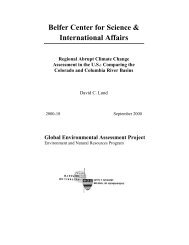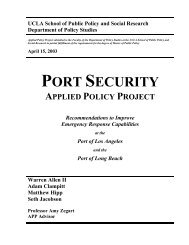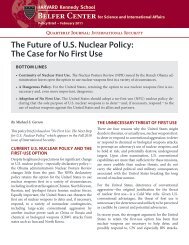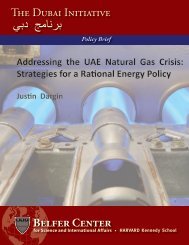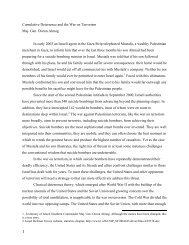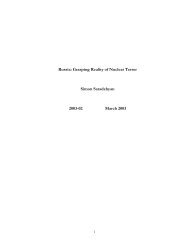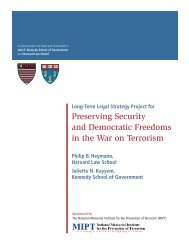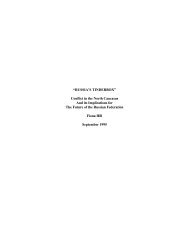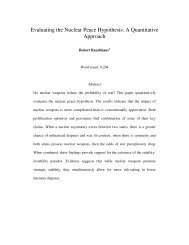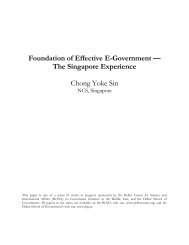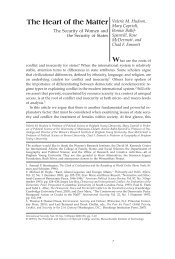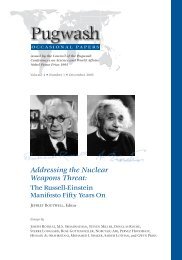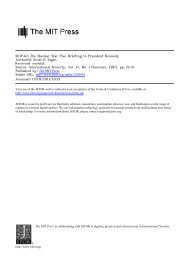Disrupting Escalation Of Terror In Russia To Prevent - Belfer Center ...
Disrupting Escalation Of Terror In Russia To Prevent - Belfer Center ...
Disrupting Escalation Of Terror In Russia To Prevent - Belfer Center ...
You also want an ePaper? Increase the reach of your titles
YUMPU automatically turns print PDFs into web optimized ePapers that Google loves.
I. Executive Summary<br />
The wave of deadly terrorist attacks in <strong>Russia</strong> in the summer and fall of 2004 prompted President<br />
Vladimir Putin to declare that terrorism networks are waging “a total and full-scale war” against<br />
his country. This paper analyzes the recent trends in this war and concludes that the logical<br />
outcome of the ongoing escalation in number, scope, and cruelty of terrorist attacks in <strong>Russia</strong><br />
will be an act of catastrophic terrorism. 1 The horrendous hostage-taking drama in the North<br />
Ossetian town of Beslan, in which more than 330 people—186 of them children—were killed,<br />
demonstrates that ideologically driven extremists in the North Caucasus have already passed the<br />
moral threshold between conventional acts of terror and catastrophic terrorism. 2<br />
This report argues that networks of these extremists are trying to expand their<br />
organizational and operational capabilities with the aim of inflicting greater damage on <strong>Russia</strong>,<br />
either by conventional means or through the use of weapons of mass destruction (WMD) or<br />
nuclear, biological and chemical (NBC) materials. It asserts that the Islamist wing of these<br />
networks is more violent and better organized than the secular wing and is increasingly<br />
motivated to resort to acts of catastrophic terrorism as it sees “conventional terror” failing to<br />
either coerce <strong>Russia</strong> to withdraw from Chechnya or at least begin negotiations with the leaders of<br />
these networks. Such attacks would be indiscriminate, but still “acceptable” for religion-driven<br />
extremists, since they perceive <strong>Russia</strong>n civilians to be “legitimate targets” due to their “tacit<br />
approval” of “infidel” combatants in a holy war.<br />
1 This article acknowledges existing differences in the expert and academic communities on what constitutes a<br />
terrorist attack. For purposes of clarity and concision, this article relies on a definition of a terrorist attack commonly<br />
found among mainstream researchers of this subject. We define a terrorist act as an act of political violence that<br />
inflicts harm on non-combatants, but is designed to intimidate broader audiences, including state authorities, and is<br />
an instrument of achieving certain political or other goals. This essay defines an act of catastrophic terrorism as a<br />
terrorist attack involving the use of chemical, biological, or nuclear materials or weapons of mass destruction, or<br />
conventional techniques to kill a significant number of people (1,000 or more).<br />
2 This article will refer to those religiously motivated and separatist insurgents who have the motivation and<br />
capability to stage acts of catastrophic terrorism as “ideologically driven extremists,” as distinct from “conventional<br />
insurgents,” who would limit themselves to “conventional” guerilla warfare and terrorist attacks of limited scale.<br />
1



